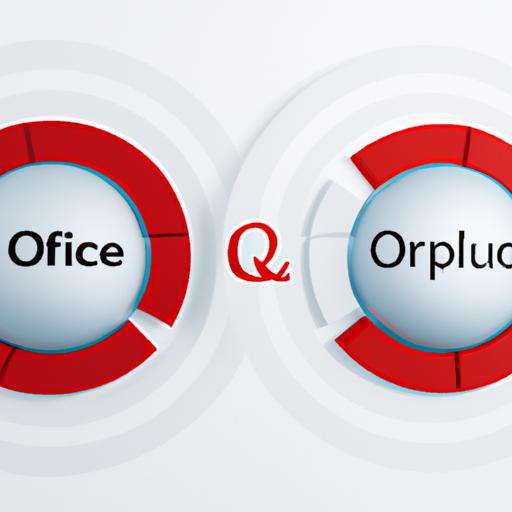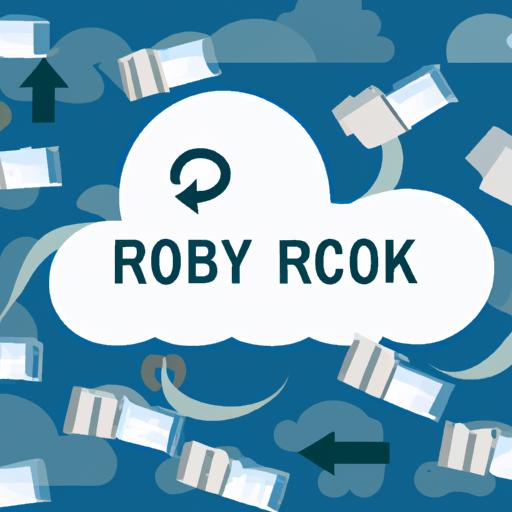Introduction
In today’s fast-paced business landscape, organizations are constantly seeking robust Enterprise Resource Planning (ERP) systems to streamline their operations and enhance productivity. Two prominent players in the ERP domain are Oracle Cloud ERP and Oracle Fusion. If you’ve found yourself contemplating which solution to adopt for your business, you’ve come to the right place. In this article, we will delve into the intricacies of Oracle Cloud ERP and Fusion, comparing their features, functionalities, and helping you make an informed decision.
A Brief Overview of Oracle Cloud ERP and Fusion
Oracle Cloud ERP is a comprehensive cloud-based solution that provides end-to-end management of various business functions, including finance, procurement, supply chain, and human resources. It offers a wide array of features such as real-time reporting, automation, and scalability, empowering organizations to optimize their operations and drive growth.
On the other hand, Oracle Fusion is a cutting-edge ERP system that combines the best practices of various industries into a unified platform. It enables businesses to streamline processes, enhance collaboration, and gain valuable insights through advanced analytics. With its flexible deployment options, Fusion caters to the unique needs of businesses of all sizes.
The Importance and Benefits of Using ERP Systems in Businesses
Implementing an ERP system like Oracle Cloud ERP or Fusion can revolutionize your business operations. These solutions act as a centralized hub, integrating different departments and providing a holistic view of your organization’s performance. By automating manual tasks and streamlining processes, ERP systems eliminate redundancies, reduce errors, and enhance efficiency.
Moreover, ERP systems facilitate data-driven decision-making by offering real-time insights into key metrics. With accurate and up-to-date information readily available, businesses can make informed choices, identify opportunities for growth, and mitigate risks. Furthermore, ERP systems enable seamless collaboration among teams, fostering communication and enhancing productivity.
In conclusion, selecting the right ERP system is vital for businesses to stay competitive and thrive in today’s dynamic market. Next, we will explore the specific features and functionalities of Oracle Cloud ERP and Fusion, providing a comprehensive understanding of each solution. Stay tuned to make an informed decision that aligns perfectly with your business requirements.
Understanding Oracle Cloud ERP
Overview of Oracle Cloud ERP
Oracle Cloud ERP is a comprehensive cloud-based solution that empowers businesses with efficient management of critical operations. It encompasses a wide range of functionalities, including finance, procurement, supply chain, and human resources. With its seamless integration capabilities and user-friendly interface, Oracle Cloud ERP offers organizations a unified platform to drive operational excellence.
Key Features and Functionalities
-
Financial Management: Oracle Cloud ERP provides robust financial management capabilities, including general ledger, accounts payable and receivable, cash management, and fixed assets. It enables businesses to automate financial processes, generate accurate financial reports, and ensure compliance with regulatory standards.
-
Procurement: This module streamlines the procurement process, from requisition to payment. Oracle Cloud ERP offers features such as supplier management, sourcing, contracts, and purchasing. It enhances visibility into the procurement lifecycle, optimizes supplier relationships, and reduces costs.
-
Supply Chain Management: With Oracle Cloud ERP, businesses can efficiently manage their supply chain operations, including inventory management, order fulfillment, and demand planning. The solution provides real-time insights into supply chain performance, enables collaboration with suppliers, and enhances overall supply chain efficiency.
-
Human Capital Management: This module facilitates effective management of human resources, covering areas such as employee onboarding, talent management, payroll, and workforce planning. Oracle Cloud ERP enables businesses to attract, retain, and develop top talent, aligning HR strategies with organizational goals.
Advantages of Oracle Cloud ERP
-
Scalability: Oracle Cloud ERP offers scalability, allowing businesses to adapt and grow without limitations. Whether you operate a small startup or a multinational corporation, the solution can accommodate your evolving needs and support your business expansion.
-
Real-time Analytics: The comprehensive reporting and analytics capabilities of Oracle Cloud ERP provide businesses with valuable insights into their operations. With real-time data at your fingertips, you can make data-driven decisions, identify trends, and proactively address challenges.
-
Security and Reliability: Oracle Cloud ERP ensures data security and reliability through advanced encryption, data backup, and disaster recovery measures. With industry-leading security features, businesses can trust that their sensitive information is protected from unauthorized access.
In the next section, we will explore Oracle Fusion, another powerful ERP solution offered by Oracle. Gain a deeper understanding of its features, functionalities, and advantages to make an informed comparison.
Exploring Oracle Fusion
Overview of Oracle Fusion
Oracle Fusion is a powerful ERP solution that seamlessly integrates multiple business functions into a unified platform. It combines the best practices from various industries, enabling organizations to optimize their operations and achieve their business goals. With its comprehensive suite of applications, Fusion provides a holistic view of your business, empowering you to make data-driven decisions with confidence.
Key Features and Functionalities
-
Unified Data Model: Oracle Fusion offers a single, unified data model that aligns different aspects of your business, including finance, human resources, supply chain, and customer relationship management. This cohesive structure allows for seamless cross-functional collaboration and eliminates data silos.
-
Advanced Analytics: Fusion’s advanced analytics capabilities provide powerful insights into your business performance. With real-time reporting and customizable dashboards, you can monitor key metrics, identify trends, and uncover actionable insights to drive growth and efficiency.
-
Flexible Deployment Options: Oracle Fusion offers flexible deployment options, allowing businesses to choose between a cloud-based, on-premises, or hybrid model. This flexibility ensures that you can select the deployment strategy that best fits your organization’s needs, scalability, and security requirements.
-
Intuitive User Interface: Fusion boasts an intuitive and user-friendly interface, making it easy for employees to navigate and use the system effectively. With a consistent user experience across applications, your teams can quickly adapt to Fusion and maximize their productivity.
Advantages of Oracle Fusion
-
End-to-End Solution: Oracle Fusion provides a comprehensive suite of applications that cover all aspects of your business. From financial management to supply chain optimization, Fusion offers a complete solution, eliminating the need for multiple disparate systems.
-
Scalability: As your business grows, Oracle Fusion can scale seamlessly to accommodate your evolving needs. Whether you’re expanding your operations or entering new markets, Fusion provides the flexibility to support your growth without compromising performance or data integrity.
-
Industry Best Practices: Fusion incorporates industry best practices and standards, ensuring that your business processes align with recognized benchmarks. By adopting these practices, you can streamline operations, improve efficiency, and drive innovation within your organization.
In the next section, we will compare Oracle Cloud ERP and Fusion, highlighting their similarities and differences in features and functionalities. Stay tuned to gain a deeper understanding of which solution is best suited for your business requirements.
Comparing Oracle Cloud ERP and Fusion
When it comes to choosing the right ERP solution for your business, understanding the similarities and differences between Oracle Cloud ERP and Fusion is crucial. In this section, we will delve into the comparisons to help you make an informed decision.
A. Similarities between Oracle Cloud ERP and Fusion
Both Oracle Cloud ERP and Fusion offer a wide range of functionalities designed to optimize business operations. Some key similarities include:
1. Comprehensive Suite of Modules: Both solutions provide a comprehensive suite of modules that cover various aspects of business operations, including financial management, procurement, supply chain, human resources, and more. This ensures that organizations can manage all their core functions within a single platform.
2. Scalability and Flexibility: Oracle Cloud ERP and Fusion are built to accommodate businesses of all sizes. They offer scalability and flexibility, allowing organizations to adapt and grow without limitations. Whether you’re a small startup or a large enterprise, these solutions can scale alongside your business needs.
3. Integration Capabilities: Integration is essential for seamless operations and data consistency. Oracle Cloud ERP and Fusion excel in this aspect, offering robust integration capabilities with third-party applications, legacy systems, and other Oracle products. This enables organizations to establish a connected ecosystem and eliminate data silos.
B. Differences in Features and Functionalities
While Oracle Cloud ERP and Fusion share similarities, they also have distinct features and functionalities. Here are some key differences to consider:
1. User Experience: Fusion boasts a modern, intuitive user interface that offers a consumer-grade experience. It prioritizes ease of use and accessibility, making it ideal for organizations seeking a user-friendly solution. On the other hand, Oracle Cloud ERP provides a more traditional interface that may require some training for users unfamiliar with ERP systems.
2. Deployment Options: Oracle Cloud ERP is a pure cloud-based solution, meaning it is hosted and managed by Oracle in the cloud. Fusion, on the other hand, offers both cloud-based and on-premises deployment options, providing organizations with greater flexibility based on their specific requirements and preferences.
3. Pricing: The pricing models for Oracle Cloud ERP and Fusion may vary. Oracle Cloud ERP typically follows a subscription-based pricing structure, where organizations pay a recurring fee based on the number of users and modules used. Fusion, being a more established solution, may have different licensing models and pricing structures, including upfront costs and maintenance fees.
C. Pricing and Deployment Options
When considering Oracle Cloud ERP and Fusion, it is essential to evaluate the pricing and deployment options to determine which aligns best with your business needs. Oracle Cloud ERP offers a subscription-based pricing model, allowing organizations to pay for what they use and scale as needed. Fusion, on the other hand, may offer different licensing models, including upfront costs and maintenance fees.
Regarding deployment options, Oracle Cloud ERP is purely cloud-based, providing the flexibility and agility of a cloud solution. Fusion, on the other hand, offers both cloud-based and on-premises options, allowing organizations to choose the deployment method that suits their preferences and requirements.
By carefully analyzing the similarities, differences, pricing, and deployment options of Oracle Cloud ERP and Fusion, you can make an informed decision that aligns perfectly with your business goals and objectives. Next, we will explore the factors to consider when choosing between these solutions, helping you navigate through the decision-making process effectively.
Factors to Consider when Choosing between Oracle Cloud ERP and Fusion
When deciding between Oracle Cloud ERP and Fusion, it is crucial to consider various factors that align with your business requirements and goals. Let’s explore some key aspects that can influence your decision-making process.
A. Business Requirements and Goals
First and foremost, analyze your business requirements and goals to determine which ERP system best caters to your needs. Consider the specific functionalities you require, such as financial management, supply chain optimization, or human resources management. Evaluate the scope and complexity of your operations, ensuring that the chosen solution aligns with your industry and business model.
B. Scalability and Customization Options
Scalability plays a vital role in accommodating your business growth. Assess the scalability features offered by both Oracle Cloud ERP and Fusion to ensure they can adapt to your evolving needs. Additionally, consider the level of customization each system allows. Determine if it provides the flexibility to tailor the ERP solution to your unique business processes and workflows.
C. Integration Capabilities with Other Systems
Efficient integration with existing systems is crucial for seamless data flow and streamlined processes. Evaluate how well Oracle Cloud ERP and Fusion integrate with your current software ecosystem. Look for compatibility with other essential applications such as Customer Relationship Management (CRM) or Business Intelligence (BI) tools. A robust integration capability ensures a unified and holistic view of your organization’s data.
D. User Interface and Ease of Use
Usability is a significant factor when choosing an ERP system. Assess the user interface of both Oracle Cloud ERP and Fusion to ensure they are intuitive, user-friendly, and align with your team’s skill sets. A user-friendly interface enables faster adoption, reduces training time, and enhances productivity. Consider conducting demos or trials to evaluate the ease of use for your specific business requirements.
By carefully considering these factors, you can make an informed decision that aligns your business with the most suitable ERP solution. Remember, the right choice will empower your organization to optimize processes, drive growth, and achieve long-term success.
Conclusion
After a thorough exploration of Oracle Cloud ERP and Fusion, it is evident that both solutions offer remarkable features and functionalities for businesses seeking to optimize their operations. Oracle Cloud ERP provides a comprehensive cloud-based platform with real-time reporting, automation, and scalability, while Oracle Fusion combines industry best practices into a unified system, offering flexibility and advanced analytics.
When choosing between Oracle Cloud ERP and Fusion, it is crucial to consider your specific business requirements and goals. Assess factors such as scalability, customization options, integration capabilities, and user interface to determine which solution aligns best with your organization’s needs. Remember, the right ERP system can be a game-changer for your business, streamlining processes, enhancing collaboration, and driving growth.
To make an informed decision, it may be beneficial to consult with ERP experts or engage in demos and trials to experience the functionalities firsthand. Additionally, gathering feedback from other businesses in your industry who have implemented either Oracle Cloud ERP or Fusion can provide valuable insights.
In conclusion, the choice between Oracle Cloud ERP and Fusion ultimately depends on your unique business needs. Both solutions have proven track records and can significantly impact your organization’s success. By selecting the right ERP system, you are equipping your business with the tools necessary to navigate the complexities of modern-day operations and gain a competitive edge in the market.
So, whether you opt for Oracle Cloud ERP or Fusion, embrace the power of ERP systems and unlock the potential for growth and efficiency within your organization. Empower your teams, streamline processes, and make data-driven decisions that propel your business forward. The future awaits, and the choice is yours.



